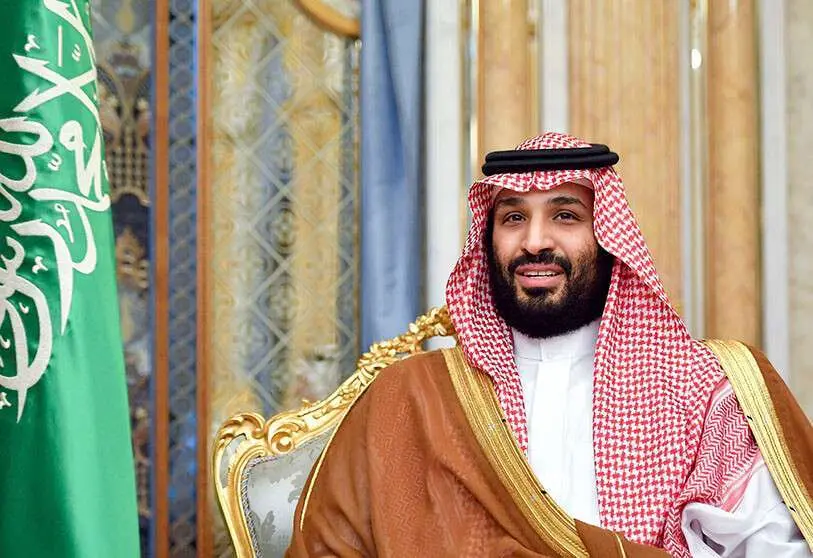Riyadh in times of crisis

It is called the land of petrodollars, born from the contraction of the words oil and dollars to say that black gold is the main source of income for the Saudi monarchy. In the Kingdom of Al-Saud, oil accounts for almost 80% of the country's export earnings.
Since the arrival in power of the young Bin Salman, Saudi Arabia has sought to diversify the image of the United Arab Emirates, which has opted for cultural tourism in Abu Dhabi and large-scale entertainment in Dubai.
But Saudi Arabia is projecting itself even further than its neighbours and its conversion is taking place through the titanic vision of 2030.
If Dubai has become the Mecca of successful cinema in Asia, Mohammed bin Salman is planning mega-festivals of film and music as well as high-tech cities in his programme.
425 billion dollars is the budget of the futuristic city of Neom. The megalopolis, which is 25 times the size of Paris, is turning to green energy and its watchwords are economic development, robotics science and e-government.
The city's promotional campaign shows women with their hair in the wind and girls and boys hanging out in cafés... images thousands of miles away from the Kingdom. A new era is heralded and the message is aimed primarily at the foreign investors the monarch wants to attract. MBS wants to get rid of the image that clings to its Kingdom: that of a religious monarchy of Sunni fundamentalist inspiration. In order to restore his country's image, major reforms have been carried out, particularly in the field of women's rights, which have so often been censured by international bodies.
However, the current situation seemed to thwart the young monarch's ambitious and daring plans. If the first phase of Neom were to see the light of day in 2025, the current crisis casts doubt on this gigantic project. Bin Salman's plans, while tending to diversify the Kingdom's income, depend, for the time being and more than ever, on the price of oil.
The fall in prices caused by the economic slowdown of recent months, combined with Saudi Arabia's policy of flooding the market, means that the Vision of 2030 announced by the monarch is likely to slow down, although Saudi Arabia will be able to hold out for another two years thanks to its huge currency reserves. This is not the case of Iraq, for example, which, despite being one of the biggest producers in the region (2nd OPEC), has been unable to cope with the fall in oil prices owing to its economic and political fragility.
That said, this is not the first time that Saudi Arabia has adopted an oil policy of this kind. In 2016 it used the same stratagem to weaken shale oil production in the United States, not forgetting, of course, its two enemies Iran and Russia, which supports Bashar al-Asad.
This year, in addition to the fall in oil prices, the large and small pilgrimages that take place throughout the year have been cancelled. This has greatly aggravated the Saudi Arabian crisis. The deficit of religious tourism of about 15 billion dollars weighs heavily on the economic balance of the country, not to mention the 500,000 people working in the sector who remain unemployed.
Furthermore, Saudi Arabia, like other Gulf countries, has long attracted workers from the Arab world, offering salaries that defy all competition. But that is changing. Since 2008, the country has faced a steadily rising unemployment rate. The increasingly young population (over 60%) has an unemployment rate estimated at 60%, according to the World Bank. Recruitment of foreigners will have to stop in the coming years to protect jobs.
Last June the International Monetary Fund (IMF) announced a 6.8% contraction in Saudi Arabia's GDP. Since then, the fall has only been confirmed. And current estimates have exceeded the 10% mark. In taking the measure of the crisis, the example of Bin Laden's group speaks for itself. The notorious construction industry employer has not fulfilled its commitments to its employees who have denounced its conditions through social networks and the press. In addition, VAT was tripled from 5 to 15% as of 1 July, a measure that was accompanied by the cessation of monthly subsidies to citizens. And the icing on the cake is the announcement of an income tax, something that has never existed in the kingdom of oil.
The Saudi government is thus opting for an austerity policy that will have the direct effect of reducing consumption rather than stimulating the economy. A risky choice for Bin Salman because if he bails out his coffers he will impoverish the most precarious and generate tensions that have already been greatly exacerbated recently.

